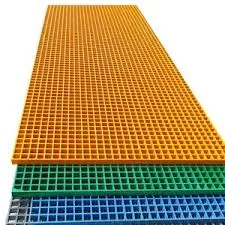
-
 Afrikaans
Afrikaans -
 Albanian
Albanian -
 Amharic
Amharic -
 Arabic
Arabic -
 Armenian
Armenian -
 Azerbaijani
Azerbaijani -
 Basque
Basque -
 Belarusian
Belarusian -
 Bengali
Bengali -
 Bosnian
Bosnian -
 Bulgarian
Bulgarian -
 Catalan
Catalan -
 Cebuano
Cebuano -
 China
China -
 China (Taiwan)
China (Taiwan) -
 Corsican
Corsican -
 Croatian
Croatian -
 Czech
Czech -
 Danish
Danish -
 Dutch
Dutch -
 English
English -
 Esperanto
Esperanto -
 Estonian
Estonian -
 Finnish
Finnish -
 French
French -
 Frisian
Frisian -
 Galician
Galician -
 Georgian
Georgian -
 German
German -
 Greek
Greek -
 Gujarati
Gujarati -
 Haitian Creole
Haitian Creole -
 hausa
hausa -
 hawaiian
hawaiian -
 Hebrew
Hebrew -
 Hindi
Hindi -
 Miao
Miao -
 Hungarian
Hungarian -
 Icelandic
Icelandic -
 igbo
igbo -
 Indonesian
Indonesian -
 irish
irish -
 Italian
Italian -
 Japanese
Japanese -
 Javanese
Javanese -
 Kannada
Kannada -
 kazakh
kazakh -
 Khmer
Khmer -
 Rwandese
Rwandese -
 Korean
Korean -
 Kurdish
Kurdish -
 Kyrgyz
Kyrgyz -
 Lao
Lao -
 Latin
Latin -
 Latvian
Latvian -
 Lithuanian
Lithuanian -
 Luxembourgish
Luxembourgish -
 Macedonian
Macedonian -
 Malgashi
Malgashi -
 Malay
Malay -
 Malayalam
Malayalam -
 Maltese
Maltese -
 Maori
Maori -
 Marathi
Marathi -
 Mongolian
Mongolian -
 Myanmar
Myanmar -
 Nepali
Nepali -
 Norwegian
Norwegian -
 Norwegian
Norwegian -
 Occitan
Occitan -
 Pashto
Pashto -
 Persian
Persian -
 Polish
Polish -
 Portuguese
Portuguese -
 Punjabi
Punjabi -
 Romanian
Romanian -
 Russian
Russian -
 Samoan
Samoan -
 Scottish Gaelic
Scottish Gaelic -
 Serbian
Serbian -
 Sesotho
Sesotho -
 Shona
Shona -
 Sindhi
Sindhi -
 Sinhala
Sinhala -
 Slovak
Slovak -
 Slovenian
Slovenian -
 Somali
Somali -
 Spanish
Spanish -
 Sundanese
Sundanese -
 Swahili
Swahili -
 Swedish
Swedish -
 Tagalog
Tagalog -
 Tajik
Tajik -
 Tamil
Tamil -
 Tatar
Tatar -
 Telugu
Telugu -
 Thai
Thai -
 Turkish
Turkish -
 Turkmen
Turkmen -
 Ukrainian
Ukrainian -
 Urdu
Urdu -
 Uighur
Uighur -
 Uzbek
Uzbek -
 Vietnamese
Vietnamese -
 Welsh
Welsh -
 Bantu
Bantu -
 Yiddish
Yiddish -
 Yoruba
Yoruba -
 Zulu
Zulu
fiberglass duct corrosion resistance
The Corrosion Resistance of Fiberglass Ducts
In various industrial applications, the efficiency, longevity, and reliability of ductwork systems are crucial. One material that has been gaining popularity due to its excellent performance characteristics is fiberglass. Comprising a composite of glass fibers and a synthetic resin, fiberglass ducts offer an array of advantages, particularly in terms of corrosion resistance.
Understanding Corrosion and Its Implications
Corrosion occurs when materials, typically metals, react with environmental elements such as moisture, air, and chemicals. This degradation can lead to failures in duct systems, resulting in down-time, costly repairs, and operational inefficiencies. In environments where corrosive substances are present—like chemical plants, wastewater treatment facilities, and oil refineries—the threat of corrosion is notably high. Even in less aggressive environments, standard materials can still face deterioration over time.
The Advantages of Fiberglass Ducts
Fiberglass ducts are inherently resistant to corrosion, making them an ideal choice for harsh conditions. Unlike traditional metal ductwork, which can rust or corrode, fiberglass does not react with most chemicals. This characteristic means that fiberglass ducts can withstand exposure to acids, bases, and salts, which would typically lead to metal deterioration.
Moreover, fiberglass ducts are lightweight, which simplifies installation and minimizes structural load. Their non-conductive properties contribute to energy efficiency by reducing heat loss during air transfer. This characteristic not only improves the energy efficiency of HVAC systems but also lowers operational costs over time.
Applications and Industries Benefiting from Fiberglass Ducts
fiberglass duct corrosion resistance

Industries that handle corrosive materials or operate in extreme conditions can significantly benefit from the use of fiberglass duct systems. Chemical processing facilities often utilize fiberglass ducts to transport corrosive vapors and gases safely. In wastewater treatment plants, the ability to withstand aggressive chemicals ensures the longevity and reliability of the system, which is vital for maintaining public health and environmental standards.
Additionally, fiberglass ducts are found in food processing facilities where hygiene is paramount. Their smooth surface prevents the buildup of contaminants, facilitating easier cleaning and maintenance. This not only meets health regulations but also ensures product safety and quality.
Comparative Analysis with Other Materials
When comparing fiberglass ducts to other materials, such as aluminum or galvanized steel, the advantages become clear. Steel ducts are susceptible to rust and corrosion, especially when exposed to moisture. Although coatings can be applied to provide some level of protection, these are not foolproof and can wear off over time. On the other hand, aluminum may corrode under certain conditions and is generally less robust compared to fiberglass.
In terms of cost, while fiberglass ducts may have a higher initial investment, their longevity and reduced maintenance needs often lead to lower overall lifecycle costs. This economic sustainability, combined with their superior performance characteristics, makes fiberglass a compelling option.
Conclusion
The corrosion resistance of fiberglass ducts positions them as a superior alternative to traditional duct materials in various challenging applications. Their ability to withstand harsh environmental conditions, coupled with their lightweight, energy-efficient characteristics, makes them an ideal choice for many industries. As organizations seek to improve operational efficiency and longevity of their duct systems, the use of fiberglass ducts is becoming increasingly prevalent. Investing in corrosion-resistant ductwork is not just a matter of immediate advantage; it signifies a commitment to reliability, efficiency, and safety in industrial operations.









